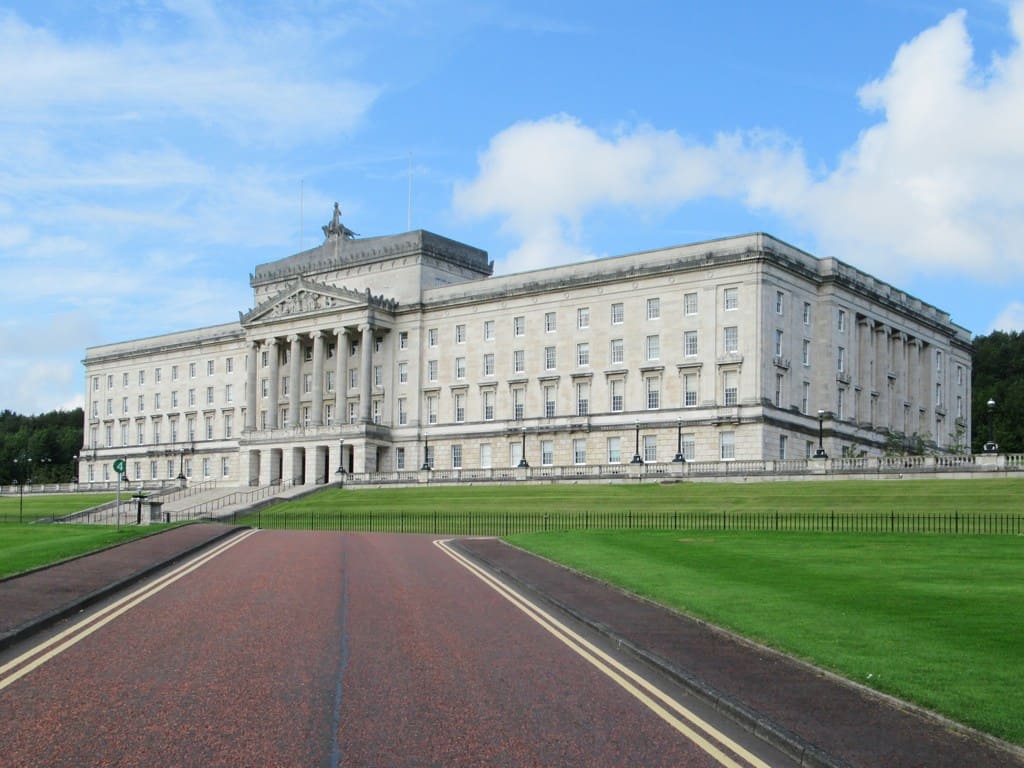When I submitted this article we were four or five days from the announcement of what became known as the Windsor Framework. The article laid out – from an unapologetically pro-union perspective – how I thought Jeffrey Donaldson should respond to the forthcoming announcement to secure the strongest possible outcome for Unionism and for Northern Ireland.
I voted Remain in 2016 because after years living in the post-industrial heartlands of the West Midlands, the North East and the West of Scotland – and East Belfast man who saw what happened to my own home area as I grew up – I was convinced London couldn’t be trusted to allocate funds fairly to the UK regions as a whole: not just Northern Ireland. But I accepted the outcome and now want the best possible outcome from Brexit on the grounds we should always make the best of what we have.
Apparently, unlike many individuals in Northern Ireland, I’m not an expert on international trade, so was not particularly exercised by the protocol. Much of the business community seemed to see some advantage in a retained membership of the single market and as I voted to remain in it anyway I believed could live with that. That applies to most of my closest friends, all of whom remain avowedly pro union.
But clearly there was serious unease about the protocol within all wings of political unionism, so that needed to be addressed.
I felt reassured to see our Prime Minister allocate so much so much of his time attempting to address the concerns of the unionist parties. That’s why I said in my previous piece that it was hard to argue that the DUP hadn’t had a decent few weeks, regardless of whether that was by design or by accident. But it also why I said the next period would be so pivotal for the DUP. Well for Jeffrey Donaldson. And it has been. Moreso than was necessary.
Jeffrey’s first challenge post Windsor was how he would address his own party membership and whether or not he would have the strength and will to challenge and confront them over what would be presented as a significant win by his party and what would be resented as the best and only deal on offer. Would the DUP – for the first time in its half century of existence – be able to recognise a victory and make the best of it, even if it wasn’t a perfect outcome.
He started well. He distanced himself from Ian Paisley Junior’s initial outburst and his appointment of his consultation team seemed to give him the time and space to galvanise his Assembly team to face down the more Paisleyite Westminster cabale. The makeup of the team – particularly but not only – the traditionally pragmatic Peter Robinson – was clever and seemed to be weighted heavily in favour of pragmatism and away from old Paisleyism.
It looked to me as if Jeffrey had the realism to accept he would need to return his party to Stormont as this was as good as it was going to get. I still think he has that realism. The big question was still whether or not he has the resilience, self confidence to take the issue to its logical conclusion, and whether he is prepared to risk his leadership by doing the right thing for Northern Ireland and for the United Kingdom. Because that’s the reality the DUP needs to accept if it is to avoid weakening the union and making unionists here a pariah in the eyes of the UK political and administrative class.
But it has clearly stalled for him, hopefully just for now.
I won’t second guess why he agreed to vote the way he did in Parliament last week, other than to charitably assume it was to avoid the public image of his Parliamentary group being split pretty much down the middle. But it hasn’t gone well for him so far, with the two ERG alumni within the NIO giving the DUP a very pointed and public slapdown. That may be a prelude to some additional “clarification” to get Jeffrey off this hook and strengthen his arguments for returning to the Executive, but it looks like he may have allowed the game to drift out of his hands by showing too much respect to Jim Allister and to a couple of organisations the rest of the country simply don’t regard as serious.
He needs to either get himself out of this pit or to find someone who can get him out of it with as much grace as possible.
There’s a reality here that as unionists we need to confront and accept. That reality is that we have a sovereign parliament that has voted overwhelmingly to endorse and implement the declaration. This is not 1912 and we don’t face the same threat as was perceived then. Nor do we have the numbers or the homogenous community to confront Parliament. Nor do we have an opposition party prepared to declare support for us in such a confrontation (The Conservative Party is only overtly unionist when in opposition).
The UK Government and the EU are both clearly embarked on building a warmer and trusting relationship that will serve both their (and our) interests. Windsor was a part of that process, part of the optics as were the King’s aborted visit to France and his current to Germany. A mere 2% of the UK population will not be allowed to derail that, so our sensible alternative is to accept the will of our united parliament and do what we can to make it work. Or at least to mitigate what our politicians see as its more damaging impacts.
The other alternative is to dig our heels in, be ignored and treated with contempt. Neither side in our constitutional split has the muscle or political weight to dig its heels in these days. Pragmatism is the only way to survive and thrive.
We also need to accept that a clear majority of people here – if the makeup of Stormont is to be taken as the measure – would likely endorse Windsor at an election. If we are to maintain – rightly that the support of a majority of the voting population is enough to maintain our place within the UK, then we also need to accept that a majority is the measure for other issues too. Not to accept that plays into the hands of anti-democrats who would deny us our own rights as a voting majority.
As for the Vichy comments from Jim Allister and Kate Hoey. Being compared to a Vichy collaborator by people whose understanding of a battlefield is arguing a bit with Mark Carruthers or the reading out a speech to the empty red benches of the House of Lords isn’t really having the intended impact on my state of mind.
Another point is that many of those who are not from our community but who have over the years been good friends to unionism (often at a risk to their media careers) are urging the DUP to be pragmatic on this occasion. It’s wrong to listen to our friends only when they agree with us. Its when they disagree that their words become much more important.
This has not been written and submitted in an effort to gain some kudos as a “liberal unionist” (I detest that patronising and insincere term). It has been submitted as someone who unapologetically wants to see Northern Ireland stabilised and the union copperfastened. Through stability any threat to the union always subsides. Historically any perceived threat to the union drives the unionist vote up, but in 2022 unionism had the lowest share of the vote ever recorded.
That isn’t because unionists became nationalists. Nor is it because the unionist community felt the DUP wasn’t being tough enough. Although it clearly lost party votes to the TUV, fifth seats went to Alliance and Unionism lost four seats overall. Its because too many unionists feel unheard in the voices of our dominant parties. We are largely a socially progressive and accepting people, yet that’s not articulated.
So pro union people are voting Alliance or for the Green Party in local elections. That doesn’t make them less British or pro union. But it does leave their vote open to misunderstanding or misrepresentation. That isn’t their fault. It is the fault of politicians who fail to speak for their people and fail to understand the way in which their community has evolved and continues to evolve.
The only way the unionist vote will grow now is for a generation to see our politicians govern responsibly and with the community’s interests to the fore.

Ian Clarke spent 36 years in sales & marketing for newspapers in Northern Ireland, England and Scotland – including the Belfast Telegraph, Wolverhampton Express & Star, Northern Echo and The Herald (Glasgow) after graduating from QUB in Political Science. Glentoran supporter.
Discover more from Slugger O'Toole
Subscribe to get the latest posts to your email.
